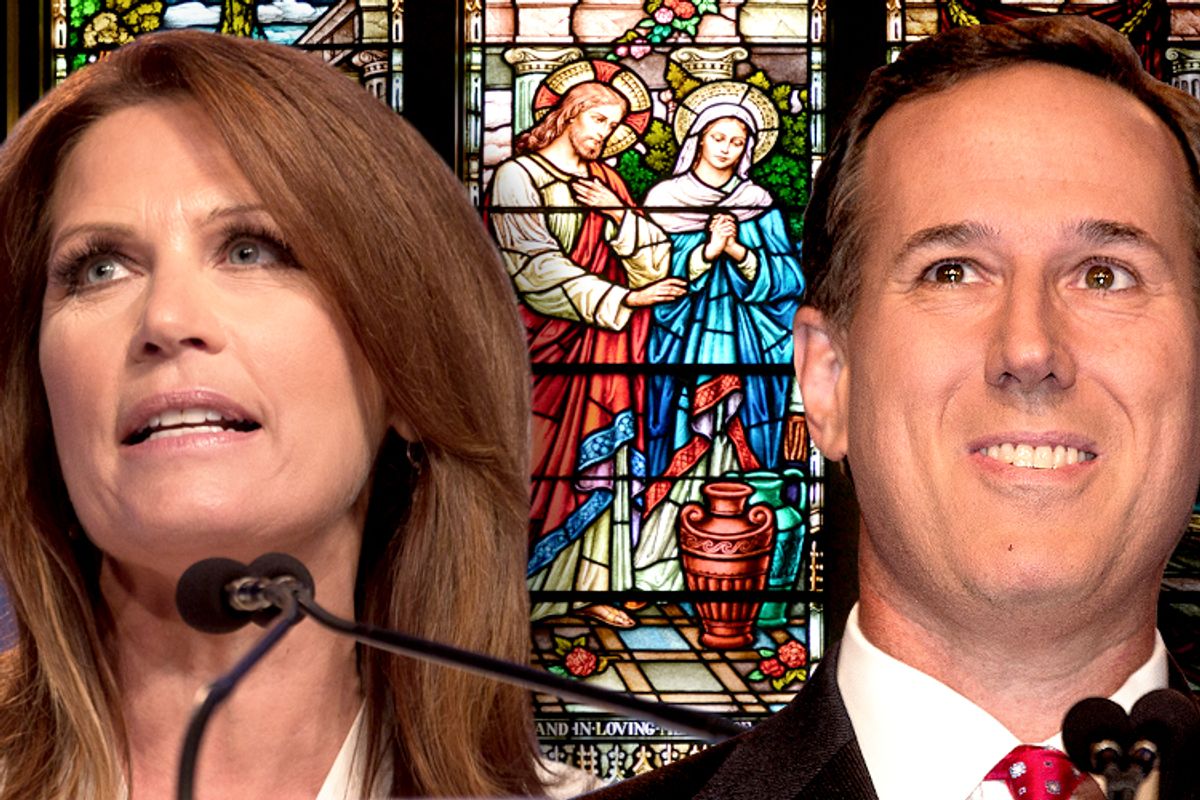The Employment Non-Discrimination Act never really stood a chance of passing the Republican-controlled House during an election year, but it remained a symbolically heavy piece of legislation. And for good reason. It's a measure that would do the simple but important work of shielding LGBTQ employees from discrimination based on their sexual and/or gender identities. Discrimination that is completely legal in most states. It is a strange and sad thing to be living in a country where something so basic -- the right to show up to your probably crappy job -- is still being fought over, but here we are. Despite being utterly uncontroversial in its premise and even though LGBTQ groups and individuals fought exhaustively to ensure the strongest and most inclusive version of the bill moved forward, ENDA has languished in congressional purgatory for decades.
But the left may just have killed it, at least in its current form. Because it needed to be killed. This week, in the wake of the Supreme Court's disastrous and sweeping Hobby Lobby decision, progressive and LGBTQ groups one-by-one withdrew their support from the measure. But far from being demoralizing, there was something electric about the National Gay and Lesbian Task Force, the Transgender Law Center and the American Civil Liberties Union issuing biting condemnations of the measure's gaping exemptions for religious organizations, exemptions made all the more gaping by the high court's decision to grant a religious conscience to 90 percent of the corporations in the United States. The message behind the move was clear: We don't want a weak ENDA. A version of the bill with wide-ranging exemptions for the very organizations and companies most committed to discriminating against LGBTQ people was pointless, and an insult to those who fought hard for the measure over the last 20 years.
The mass defection was also a direct challenge to President Obama and congressional Democrats to stop caving to ridiculous temper tantrums from an increasingly extreme -- and increasingly fickle when it comes to abiding by federal and state law -- contingent of the religious right. The Hobby Lobby decision may have been the breaking point, but momentum has been building in recent years behind claims from businesses and individuals who do not want to follow any law -- or any future law -- that could get in the way of their anti-LGBTQ bigotry or efforts to control women's lives and bodies.
"The morning the sun rose after the Supreme Court’s Hobby Lobby ruling, we all woke up in a changed and intensified landscape of religious exemptions being used as an excuse to discriminate." Task Force executive director Rea Carey wrote in the Advocate. "The reality is that while politics is about compromise, some compromises are too great."
As it stands, corporations no longer have to include birth control -- potentially any method of birth control -- in company insurance plans if they don't want to. The high court ruling has also opened the door to a host of other forms of discrimination, as long as they are rooted in "sincerely held" religious beliefs. This precedent bodes terribly -- terribly terribly -- for reproductive and LGBTQ rights, but it's bad news for religious liberty, too. The owners of Hobby Lobby and other Christian conservatives are taking a shallow victory lap, but the trend toward increased state intervention into matters of faith is trouble across the board. As David Post, a law professor at Temple University and a former clerk for Justice Ruth Bader Ginsburg, wrote this week in the Washington Post, the ruling effectively invited the courts to examine "whether a plaintiff’s objection is 'on religious grounds,' and part of a 'sincere' religious belief system" -- an uncomfortable breach of the First Amendment’s Free Exercise Clause, meant to prevent government intrusion and inquiry into matters of personal faith.
Ginsburg issued the same warning in her powerful dissent. "Approving some religious claims while deeming others unworthy of accommodation could be ‘perceived as favoring one religion over another,’ the very ‘risk the [Constitution's] Establishment Clause was designed to preclude," she wrote. The high court just found in favor of corporate personhood -- again -- and basically gave the finger to women and LGBTQ people, but they also brought the state into churches and mosques and synagogues across the country.
In the immediate term, the progressive move to kill ENDA is an agonizing but necessary development. The protections guaranteed in the legislation are urgently needed, and in some ways -- at least for now -- conservative obstructionism and tantrums are setting the policy agenda. But it's also an encouraging sign that this is a fight the left is in for the long run. The Christian right wants to live above the law, and so far they've been wildly successful at getting what they want. But the progressive left -- led by a coalition of LGBTQ organizations -- is finally poised to fight hard against the trend, and to push Congress and Obama to do the same. Killing ENDA in its current neutered form is hopefully just the beginning of an embolden progressive movement reclaiming the terms of the debate. We're already seeing some movement from Democrats in Congress fighting back against corporate overreach and cynical religious claims, but there's so much more work to be done.

Shares